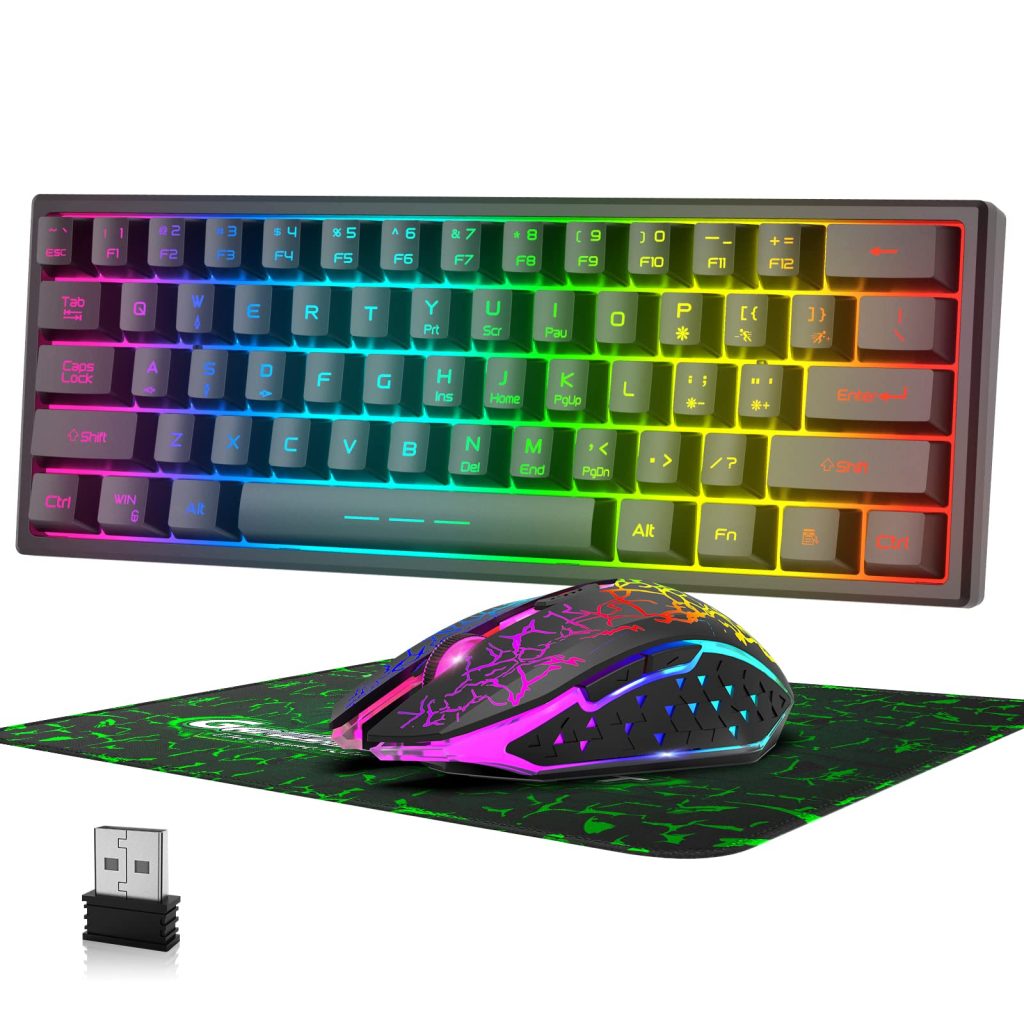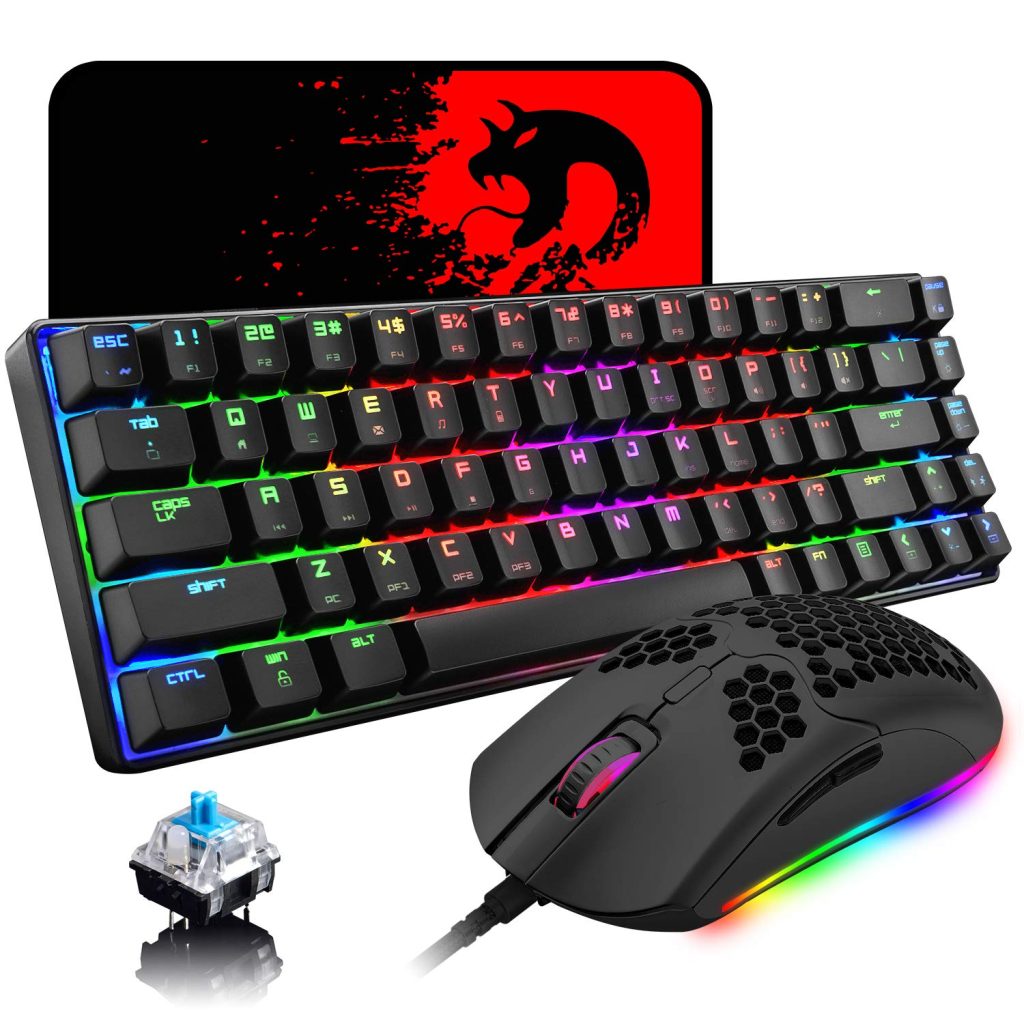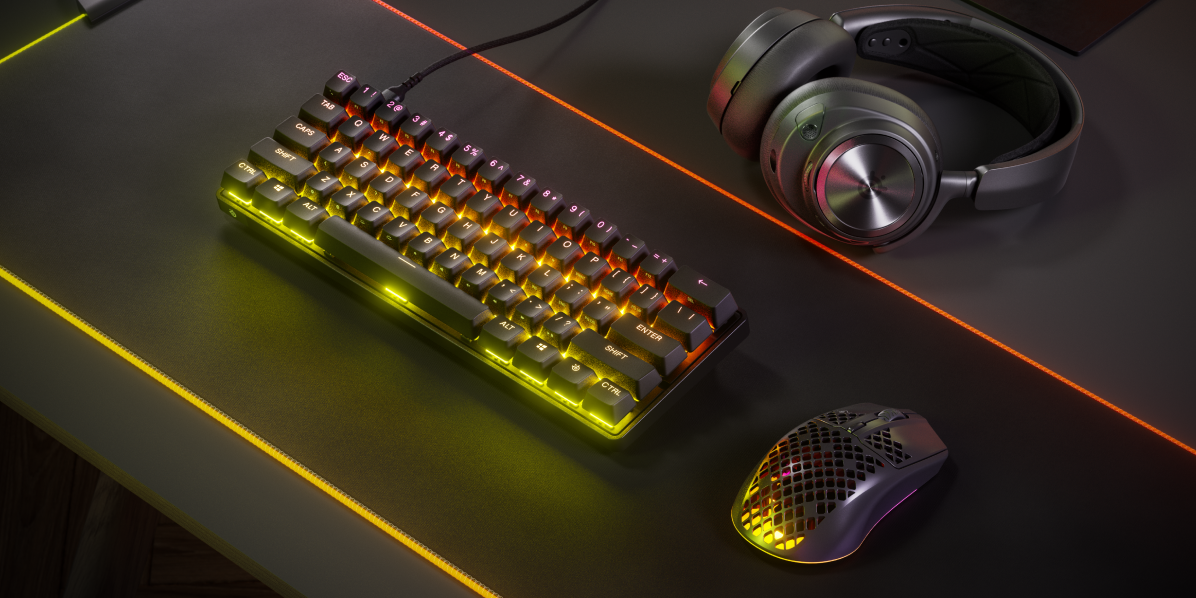The Gaming Keyboard Showdown: Mechanical vs Membrane
When selecting the ideal gaming keyboard, the battle often comes down to two contenders: mechanical and membrane keyboards. Each type offers distinct characteristics that can influence gaming performance, comfort, and overall experience. Mechanical keyboards, known for their individual switches beneath each key, provide a different level of tactile feedback and durability than their membrane counterparts, which operate on a pressure pad system. Here we’ll break down the showdown between mechanical and membrane keyboards, evaluating factors such as touch sensation, response times, and customization to help you decide which is the top choice for your gaming needs.
Typing Feel and Tactile Response
Mechanical Keyboards: Precision and Clicky Satisfaction
Mechanical keyboards are lauded for their precise and tactile keypresses. The construction of a mechanical switch allows for distinct actuation and reset points, which can contribute to better accuracy and speed during gameplay. Each switch type, from the clicky Cherry MX Blue to the linear Cherry MX Red, offers a unique typing experience. Gamers may find that successful in-game actions are more satisfying with the tangible feedback that mechanical keys provide.
Membrane Keyboards: Soft Touch and Quieter Keystrokes
Membrane keyboards, on the other hand, offer a softer and often quieter typing experience due to the rubber dome design beneath the keycaps. They require a full press down to actuate, making them less noisy – a feature that might be preferable in shared spaces. For gamers who favor a less clicky and softer feedback, or have budget constraints, membrane keyboards can be a practical and comfortable alternative.

Durability and Longevity
Build to Last: Mechanical Endurance
Mechanical keyboards are typically more durable than membrane keyboards. The lifespan of a mechanical switch can be upwards of 50 million keystrokes, which is significantly higher than the average membrane keyboard. Investing in a high-quality mechanical keyboard like the Corsair K95 RGB Platinum can be cost-effective in the long run due to their extended durability. This robustness makes mechanical models especially appealing to avid gamers who need their gear to withstand heavy and frequent use.
The Affordable Choice: Membrane Wear and Tear
Membrane keyboards tend not to have as long of a lifespan as their mechanical counterparts, often ranging around 5 to 20 million keypresses. That said, they’re generally more affordable upfront. A membrane keyboard like the Logitech G213 Prodigy provides a budget-friendly option while still delivering essential gaming functionality. They can still be a worthwhile option for casual gamers or those who are just starting to explore gaming peripherals.

Customization and Versatility
Programming Potential: Mechanical Flexibility
Mechanical keyboards often come with advanced customization options. Users can reprogram keys, create macros easily, and swap out keycaps for a personalized setup. For individuals looking to tailor every aspect of their gaming experience, mechanical keyboards often have more to offer. The Razer BlackWidow Elite, for example, provides extensive macro programming options and key remapping through its Razer Synapse software, allowing for a high level of customization.
Streamlined Simplicity: Membrane Conformity
While membrane keyboards may offer less in terms of customizability compared to mechanicals, certain high-end models still provide a degree of customization, such as customizable backlighting and programmable keys. The Razer Cynosa Chroma is an example of a membrane keyboard that comes with per-key RGB lighting and programmable macros, proving that membrane keyboards can also cater to gamers who want customizable functions without the mechanical price tag.

Performance and Fast Action
The Gamer’s Edge: Mechanical Speed
In games where every millisecond matters, the quick actuation of mechanical keys can give competitive gamers an edge. Many mechanical keyboards offer additional features like N-Key rollover and anti-ghosting, which ensures that every keystroke registers, even during complex moves. For gamers engaged in fast-paced, competitive play, the speed and reliability that mechanical keyboards offer can translate into a performance advantage.
Consistency and Quiet: Membrane Operations
Membrane keyboards, while they may not have the same quick actuation, still offer consistent keypresses which some gamers may prefer. They can also be less distracting thanks to their quieter keys. For everyday gamers or those playing in shared or noise-sensitive environments, the quieter and softer touch of a membrane keyboard like the Microsoft Comfort Curve Keyboard 3000 might be more suitable.

Impact on Gaming Environment
Immersive Experience with Mechanical Keyboards
The atmosphere of a gaming setup contributes significantly to overall immersion, and mechanical keyboards can serve as the centerpiece with their satisfying clicky sounds and dynamic backlighting effects. Keyboards like the Asus ROG Claymore not only deliver on performance but also feature Aura Sync RGB lighting, which can synchronize with other peripherals, enhancing the thematic consistency of your gaming environment. The audible feedback and visual spectacle of a mechanical keyboard do more than perform; they become part of the gaming experience.
Streamlined and Subtle with Membrane Keyboards
For those who prefer a minimalist approach, membrane keyboards often boast a more streamlined and compact design. Their lower profile and quieter keystrokes can contribute to a more subdued and focused gaming environment. The Apple Magic Keyboard, while not typically marketed for gaming, exemplifies this with its sleek design and quiet operation. It can blend seamlessly into a gaming setup that emphasizes a clean and unobtrusive look, maintaining the focus on the game itself.

Cost and Value Considerations
Evaluating the Investment in Mechanical Keyboards
When debating the merits of mechanical versus membrane keyboards, the cost can play a significant role in the decision. Mechanical keyboards, due to their superior build quality and features, often come with a higher price tag. However, the investment in a mechanical keyboard, such as the Ducky One 2 Mini, might be justified for gamers who are serious about their performance and look for a durable product that will last for years.
Finding a Balance with Membrane Keyboards
Conversely, membrane keyboards offer a cost-effective solution for gamers operating within a tighter budget, who may not require the extensive features of a mechanical keyboard. Brands like HP and Dell offer basic but reliable membrane gaming keyboards that provide the necessary functionality without breaking the bank. These can be an attractive option for gamers who seek value and are willing to compromise on some aspects of performance and customization.
In the gaming keyboard showdown between mechanical and membrane types, it’s ultimately up to personal preference, gaming style, and budget when making your selection. Mechanical keyboards offer tactile feedback, higher durability, and customization at a higher price point. Membrane keyboards bring softer keystrokes, quieter use, and affordability. Consider the factors most important to your gaming experience before making an investment, and choose the keyboard that will support your journey to gaming triumphs.
